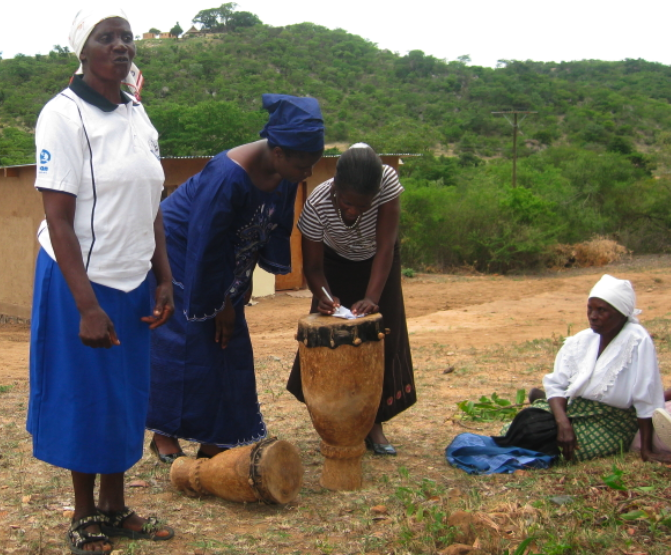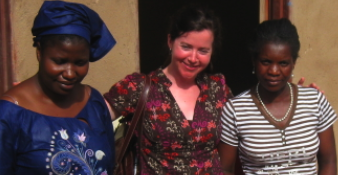A 'Ray of Hope' for Survivors
When Zimbabwe’s Domestic Violence Act became law in 2007, Firelight grantee Ray of Hope celebrated the important milestone. Based in the rural Mutasa District of Zimbabwe’s eastern highlands, Ray of Hope is a community-based network of domestic violence survivors working to empower women and protect and support vulnerable children.
Ray of Hope reports that the new law against domestic violence—almost a decade in the making—is only a first step in curbing the abuse of women and children. A variety of obstacles stand in the way of the law’s full implementation.
They are up against long-ingrained “blame-the-victim” attitudes that consider abuse survivors “failures” and treat them as “outcasts,” explains Shorai Chitongo, Ray of Hope’s founder.
Many people do not know about the law or understand it, while others do not view women as equal to men and still perceive the abuse of women and children in the home to be a personal, and therefore, private issue.
Changing Attitudes, Winning Local Support
One of Ray of Hope’s current goals is to increase public understanding of the impact of abuse on women and children, and to change entrenched views through education.
Firelight supports these objectives by funding Ray of Hope’s public awareness campaigns and provision of direct assistance to domestic violence survivors and their children.
To economically empower women who have left abusive situations, Ray of Hope offers training and start-up capital for small businesses. They also assist survivors with school fees for their children, food, legal assistance, and trauma counseling.
And they are making progress in winning local support and changing attitudes.
More than 1,500 community members participated in a local International Rural Women’s Day event, organized by Ray of Hope, where community leaders spoke against domestic violence.
Chief Sherukuru, an influential traditional leader often called on to settle domestic disputes, praised the women for their courage and urged men to follow suit.
Men “will become better men if they follow the lead set by these women and speak out against this terrible crime in our society,” he told the crowd.
Chitongo also reports that fewer men are blocking women from participating in the organization’s community meetings. In the past, “we were viewed as a collection of people out to destroy the Mutasa way of life,” she explains.
Founder Advocates Courage and Bravery
Ray of Hope was born in 2006 out of Chitongo’s terrible personal experience.
In 2005, her domestic violence case captured national media attention and the sympathy of Betty Makoni, the director and founder of Girl Child Network (GCN), another Firelight grantee.
After Makoni provided Chitongo with emotional support, financial assistance, and a safe place to recover, Chitongo managed to regain security for herself and her children and began to explore ways to help other women directly affected by domestic violence, especially in rural areas.
While a volunteer facilitator at GCN, Chitongo developed her vision to assist women to “soldier on and create peaceful environment[s] for both us and our children,” advocating for survivors to “take a second chance at life with courage and bravery.” Soon after, she founded Ray of Hope.
In 2006, Firelight became Ray of Hope’s first external funder, supporting the organization with a small grant of $5,000 to conduct human rights awareness campaigns; economically empower women in abusive situations by providing start-up capital and training; and enable children to attend school by covering fees and providing food.
With training and capital from Ray of Hope, network members are generating income by making soap and sewing school uniforms. With the proceeds, they are supporting themselves and more than 80 vulnerable women and children.
With independent incomes, the women wield stronger positions in their households, gain confidence to resist abuse, and are better able to provide for their children. Through their participation in Ray of Hope’s regular meetings, they also learn how to assert their rights and protect themselves from HIV/AIDS, says Chitongo.
Today, Ray of Hope is on the brink of expanding its network of abuse survivors and starting groups in nearby farming and mining communities to empower more women and protect more vulnerable children.
First published in Firelight’s Annual Report 2007 and updated for this posting.





